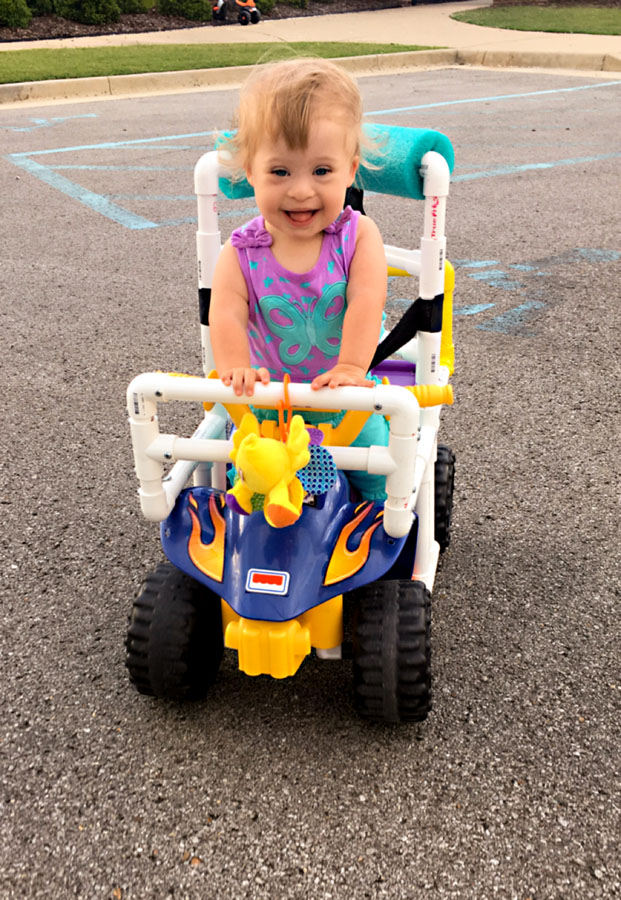
Goal
Lead efforts to develop, test, and evaluate new and existing therapeutics and devices to find safe and effective solutions that meet the unique needs of pregnant and lactating women, children, and people with intellectual and physical disabilities.
Goal
Lead efforts to develop, test, and evaluate new and existing therapeutics and devices to find safe and effective solutions that meet the unique needs of pregnant and lactating women, children, and people with intellectual and physical disabilities.

Research Opportunities
Pregnant and lactating women, children, and people with intellectual and physical disabilities are often prescribed therapeutics that have not been adequately tested for their specific needs. Pharmaceuticals may clear from the body more rapidly in some of these populations, necessitating a higher dose to be effective; or they may accumulate in the blood for longer periods, requiring a lower dose for safety. Pregnant or lactating women who take medications for chronic health conditions do not have enough information to assess whether and at what dose these treatments are appropriate; neither do their healthcare providers. At the same time, leaving a chronic condition untreated could harm the pregnant woman, the fetus, or both. Advances in pharmacogenomics and bioinformatics now make it possible to better understand how factors such as obesity, nutrition, and other exposures affect the action of drugs. Applying these methods to the study of pharmaceuticals in children, pregnant women, and people with disabilities could be beneficial. There are few incentives for industry to conduct such research, particularly for drugs that are off-patent, making the government’s role in this research even more critical.
NICHD will continue to lead research efforts to establish the scientific evidence needed for effective treatment of pregnant and lactating women, children, and people with intellectual and physical disabilities. The institute will also lead efforts to assure that assistive and medical devices are effective and optimize function for children (including critically ill children) and people with disabilities. These efforts will benefit from multidisciplinary collaboration with researchers in fields such as computer science and engineering. New approaches in the design, manufacture, and customization of medical and assistive devices will facilitate these research advances.
 NICHD Deputy Director Dr. Alison Cernich (front, third from left) with the National Advisory Board on Medical Rehabilitation Research, which advises NICHD leadership on ways to coordinate rehabilitation research across NIH and the federal government.
NICHD Deputy Director Dr. Alison Cernich (front, third from left) with the National Advisory Board on Medical Rehabilitation Research, which advises NICHD leadership on ways to coordinate rehabilitation research across NIH and the federal government.
Scientific Priorities to Advance Public Health
- Conduct and support foundational research on the development of therapies, including pharmacokinetic, pharmacodynamic, pharmacogenomic, dosing, and formulation studies, to ensure that these treatments meet the needs of pregnant or lactating women, children, and people with disabilities.
- Identify specialized biomarkers, new modeling approaches, and improved outcome measures to support the use of pharmacotherapies and reduce barriers to testing these therapies in pregnant and lactating women, children, and people with intellectual and physical disabilities.
- Support clinical research to test and evaluate therapeutics and medical devices used by pregnant and lactating women, children, and people with intellectual and physical disabilities.
- Use large-scale datasets—such as electronic health records, research networks or registries, or other big data approaches—to measure exposure responses to therapy and device use among pregnant and lactating women, children, and people with disabilities.

Despite some risks, prenatal surgery to repair the most severe form of spina bifida offers better results than traditional repair after birth. NICHD pioneered the procedure, which reduces the need for a shunt and increases the chances that kids like Evalyse will walk and run without assistance. CREDIT: CHILDREN’S HOSPITAL OF PHILADELPHIA

A child with Down syndrome participates in the University of Delaware’s GoBabyGo! program, an NICHD-funded effort that helps children with disabilities move and socialize. CREDIT: UNIVERSITY OF DELAWARE PHOTO SERVICES
 BACK TO TOP
BACK TO TOP